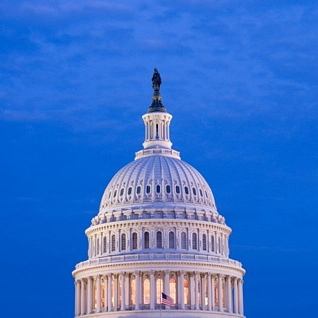The Travel Detective
New Budget Deal: Is Congress Failing to Support Travel?
 Yes, Congress has reached a new bipartisan budget deal, but it’s not great for everyone. Read Peter’s latest Travel Detective blog to see how every traveler will feel the pinch next year and why this is part of a greater trend.
Yes, Congress has reached a new bipartisan budget deal, but it’s not great for everyone. Read Peter’s latest Travel Detective blog to see how every traveler will feel the pinch next year and why this is part of a greater trend.
It seems that anytime a government wants to raise revenue, it looks to tax the very people it doesn’t represent — travelers.
For starters, look at city occupancy taxes — already high and getting higher. Visitors pay those taxes, not local voters. And every time you stay at a hotel, you’re helping to build someone else’s sports stadium or other government project.
In the United Kingdom, it gets even worse for air travelers. Leaving the UK by plane? Expect to pay a hefty tax (on some business class tickets it can be an additional $280 per flight per person!). It’s bad enough that the amount is so high. It’s worse that the money doesn’t even go to improving airports and travel infrastructure.
And now, Congress has come up with an unoriginal approach to raise revenue: an airline ticket tax, at the very time when airfares are poised to rise again. As part of the bipartisan budget act of 2013 (which means the Democrats and Republicans are equally to blame), this ticket tax is on top of the billions in taxes and fees that the U.S. government already imposes on U.S. airlines and their passengers. And, once again, where will that tax revenue go? Not to improving airports (fact is, our airports are not competing globally), or infrastructure or air traffic control, but will be used to offset other deficits.
What’s missing in these particular travel or ticket taxes is an acknowledgment of their negative impact on one of America’s largest exports and generator of income and jobs: travel. On creating — and keeping jobs — and worse, the possibility that the rise in airfares from the taxes may tip the scales and discourage U.S. travelers from flying, or foreign travelers from visiting the U.S.
It’s a bad idea, and a bad tax, at a time when airlines are consolidating (just a few things you should know about the recent merger too), more people are competing for fewer seats and the law of supply and demand dictates that fares can only go up — and along with that, also taxes.
By Peter Greenberg, originally published for LinkedIn












